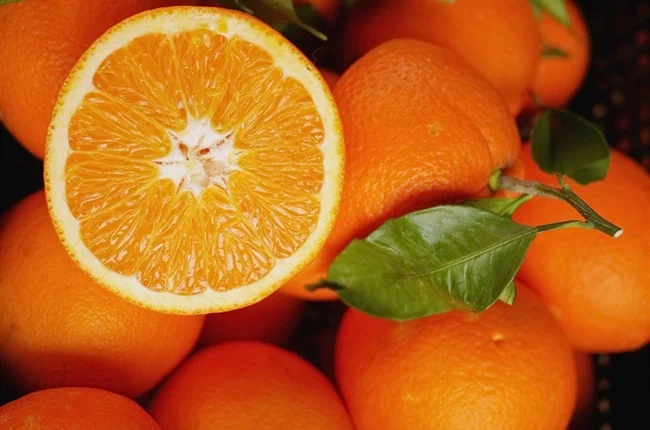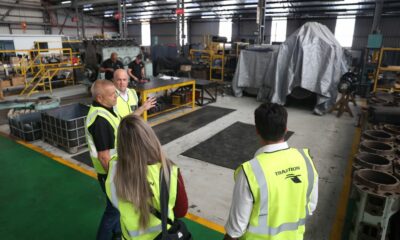Business
Citrus Industry Backs Transnet’s R51bn Boost as Peak Export Season Arrives

The air is thick with the scent of citrus in orchards across South Africa. Crates of freshly picked oranges are being readied for export, and across the country’s ports, the rhythm of peak citrus season is picking up. For the Citrus Growers’ Association (CGA), this time of year is critical—and 2025’s season may mark a turning point.
At the heart of their cautious optimism is a lifeline from the government: a R51 billion guarantee for Transnet. It’s a move that could reshape the logistics landscape for citrus exports, and the CGA is welcoming it—while pushing for even bolder changes.
A Welcome Signal Amid the Pressure
CGA CEO Dr. Boitshoko Ntshabele doesn’t mince words. The R51 billion support package, he says, comes at a crucial moment for Transnet and its customers. The rail and port operator has shown signs of improvement: 256 new workers have been brought on, refrigerated container points have been repaired, and over 100 pieces of new equipment are now in service.
“This season has started smoothly,” Ntshabele said. “But the real test is coming over the next two months. We’re preparing to move 171 million cartons of citrus, and the entire supply chain has to be firing on all cylinders for that to happen efficiently.”
It’s not just about getting fruit out of the country—it’s about getting it there on time and without incurring the kind of losses that can cripple farmers’ margins.
Public-Private Partnerships: The Key to Long-Term Efficiency
While the CGA acknowledges Transnet’s recent efforts, it’s also pushing for lasting structural changes. Chief among them is the acceleration of public-private partnerships (PSPs) in both ports and rail.
Ntshabele believes that opening the door to private operators is essential to solving South Africa’s long-term freight inefficiencies. “PSPs bring in technical expertise, accountability, and a performance mindset,” he said. “They also unlock jobs and innovation—something our industry needs if we want to grow sustainably.”
Currently, only 10% of South Africa’s citrus reaches ports via rail. With rail being significantly cheaper and more environmentally friendly, increasing this percentage could be a game-changer.
Progress, But Still Stuck in Legal Limbo
Not all is smooth sailing, though. While some PSP projects are moving forward, a potentially transformative upgrade of the Durban Container Terminal Pier 2 remains tied up in a legal dispute. For the citrus industry, that delay is more than frustrating—it’s costly.
“We need momentum, not more court battles,” Ntshabele said. “Durban is critical for citrus, and the delay affects our entire export strategy.”
The Bigger Picture: Jobs and Global Competitiveness
Looking further ahead, the CGA sees the citrus industry playing a much larger role in South Africa’s economic future. With the potential to create 100,000 new jobs by 2032, citrus isn’t just about fruit—it’s about livelihoods.
That’s why the CGA is urging Transnet to stick with the PSP course and move swiftly. “The groundwork has been laid. Now it’s time to follow through,” said Ntshabele.
A Call for Action
The citrus industry has shown what’s possible when partnerships align and logistics are managed effectively. With the government’s R51 billion guarantee and early improvements from Transnet, the pieces are falling into place. But more needs to be done.
Now is the time for bold, coordinated action. For the citrus sector to reach its full potential—and for thousands of workers, farmers, and exporters to benefit—South Africa’s logistics engine must move faster and smarter.
If you’re part of the agricultural supply chain, a logistics operator, or a policymaker, the message is clear: step up, collaborate, and make citrus count this season.
{Source: Food For Mzansi}
Follow Joburg ETC on Facebook, Twitter , TikTok and Instagram
For more News in Johannesburg, visit joburgetc.com



























